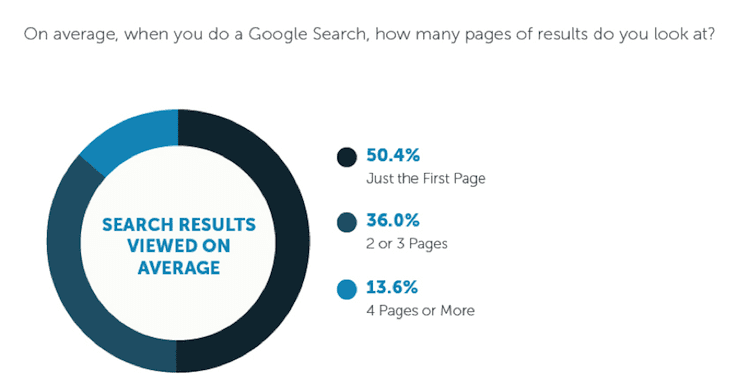WHAT EVERYONE OUGHT TO KNOW ABOUT REPUTATION MANAGEMENT

by Jenna Yoder
Have any of the below happened to you?
- You or your business have scathing reviews on sites like Yelp or TripAdvisor
- Your business or product are the recipients of fake Amazon, Facebook or Google reviews
- When someone searches your name, all the links that come up on page 1 are from negative articles
These are just three instances where online reputation management (ORM) comes into play. You can think of ORM as a specialist subset of SEO that deals with the strategic handling of negative search results.
Not all agencies offer this service, so it’s critical that anyone shopping for it knows what’s involved. Below are some key facts about the process that everyone should be aware of:
1. Reputation management can’t remove negative links
What a good ORM program does is push negative content down to less frequented search pages by creating positive content optimized to rank higher than the negative links. Studies on search behavior, such as this one from GoFish Digital, show that 50% of searchers don’t go beyond page 1 of search engine result pages (SERPs) while only 36% venture onto page 2 or 3.

FINDINGS FROM A 2015 GOFISH DIGITAL STUDY SHOW THAT ONLY 13% OF SEARCHERS MAKE IT TO PAGE 4 AND BEYOND.
However just creating content, any content, and throwing it up on the Internet will not automatically push bad content to page 3 when someone searches. A good ORM partner will sit down with you, determine the extent of the damage, and design a campaign that incorporates the best types of content for your needs.
At the onset, your partner should create a spreadsheet of all links that turn up on SERPs. Highlighting these links green for positive, red for negative and neutral links yellow will ensure that you are on the same page about what should be pushed down, what should be retained and whether the links are moving week to week.
2. Reputation management takes time
Be ready to invest a significant amount of time in addressing reputation management issues. At a webinar on how to bury a Ripoff Report review, ORL old hands BrandYourself said it can take from 9 to 12 months to start seeing solid results, a time frame that Globe Runner finds accurate. Any vendor who tells you that it can be done faster is either overly optimistic or unfamiliar with the amount of work involved.
The content creation alone takes a lot of time. Most reputation management campaigns will require setting up strategic microsites, social media accounts and other properties that carry or link to positive content. The infrastructure and keyword strategy will need tweaking as links start showing movement. Like good SEO, there are no short cuts.
3. Reputation management is not always about maintaining an open dialogue
We’ve all been taught to address negative comments the minute they surface. Social media is rife with examples of how businesses or individuals ignored unflattering remarks online only to face a veritable tsunami of bad publicity when they woke up the next day. Nipping a situation in the bud and engaging with complainers is generally a good social media policy.
In reputation management, exceptions are made for protracted dialogues with a party intent on destroying reputations, not resolving the issue. This is especially true for Ripoff Report complaints which are notoriously hard to remove. If you suspect that a competitor, disgruntled employee or the like are behind a Ripoff Report complaint that is patently untrue, avoid getting embroiled in an all-out flame war.
Instead, take the advice of Ripoff Report’s lawyer, Maria Crimi Speth: Consult your public relations and legal advisers before jumping into the fray. Aim for arbitration instead of a prolonged social media brawl. And don’t discount the benefits that a structured online reputation management campaign brings. As Speth said, “Redouble your efforts in legitimate and positive PR. Robust and favorable content about your business will be especially valuable when a bad issue strikes.”
Jenna Yoder is an account manager for Globe Runner specializing in online reputation management. Photo by Max Mayorov on Flickr.
























